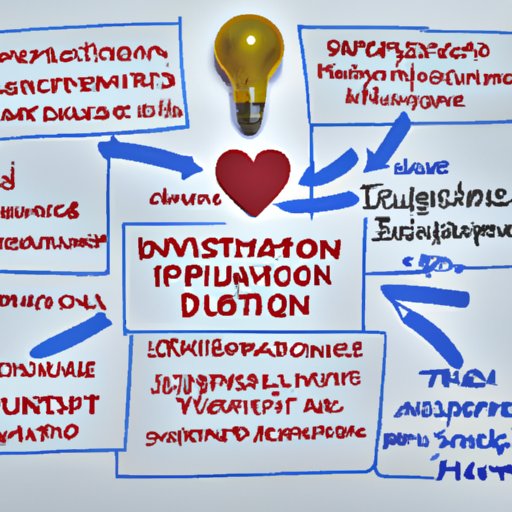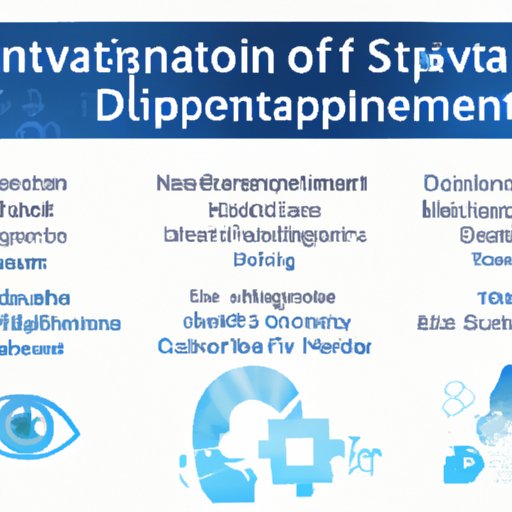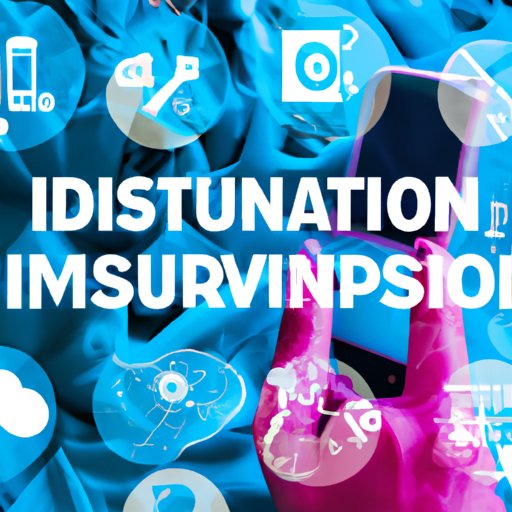Introduction
The healthcare industry is constantly changing, as organizations and individuals strive to improve access to care, reduce costs, and make services more efficient. One of the most important changes occurring in the healthcare landscape is the emergence of disruptive innovation. But what exactly is disruptive innovation in healthcare?

Definition of Disruptive Innovation in Healthcare
Disruptive innovation is a concept developed by Harvard Business School professor Clayton Christensen. It refers to an innovation that creates a new market by introducing a product or service that is simpler, cheaper, and more convenient than existing alternatives. In the healthcare industry, disruptive innovation can refer to anything from new technologies and treatments to new business models and delivery systems.

Overview of the Impact of Disruptive Innovation on the Healthcare Industry
Disruptive innovation has had a profound impact on the healthcare industry. From telemedicine to wearable devices, disruptive innovations have changed the way healthcare is delivered and consumed. These innovations have enabled patients to access care more easily and quickly, while also allowing providers to deliver care more efficiently and cost-effectively.
How Can Disruptive Innovation Improve Healthcare?
Disruptive innovation has the potential to improve healthcare in several ways. Here are some of the key benefits of disruptive innovation in healthcare:
Improved Accessibility
One of the primary goals of disruptive innovation is to make healthcare more accessible. By introducing new technologies, treatments, and delivery systems, disruptive innovations can make healthcare more accessible to those who may not have had access to it before. For example, telemedicine has enabled patients to access care from the comfort of their own homes, while wearable devices have made it easier for patients to track their health and receive treatment in real-time.
Increased Efficiency
Disruptive innovations can also improve the efficiency of healthcare delivery. By introducing new technologies and treatments, healthcare providers can reduce the time and resources needed to provide care. For example, artificial intelligence (AI) and machine learning can help providers quickly analyze large amounts of data and make decisions more quickly, while 3D printing can be used to create personalized medical devices in a fraction of the time it would take using traditional methods.
Lower Costs
Finally, disruptive innovations can help reduce the overall cost of healthcare. By introducing new technologies and treatments, healthcare providers can reduce their overhead costs, which can lead to lower prices for patients. Additionally, by making healthcare more accessible and efficient, disruptive innovations can help reduce the cost of care by reducing the need for expensive procedures and treatments.
Examining the Benefits and Challenges of Disruptive Innovation in Healthcare
While there are many potential benefits to disruptive innovation in healthcare, there are also some potential challenges that must be addressed. Here are some of the key benefits and challenges associated with disruptive innovation in healthcare:
Benefits
The primary benefit of disruptive innovation in healthcare is improved access to care. By introducing new technologies, treatments, and delivery systems, disruptive innovations can make healthcare more accessible to those who may not have had access to it before. Additionally, disruptive innovations can improve the efficiency of healthcare delivery and help reduce the overall cost of healthcare.
Challenges
One of the main challenges associated with disruptive innovation in healthcare is the potential for disruption of existing systems. As new technologies and treatments are introduced, they may disrupt existing systems and processes, which could lead to confusion and chaos. Additionally, the rapid pace of change associated with disruptive innovation can make it difficult for healthcare organizations to keep up.
What Does the Future Hold for Disruptive Innovation in Healthcare?
As disruptive innovation continues to gain traction in the healthcare industry, it’s important to consider what the future holds for this type of innovation. Here are some of the key trends to watch in the coming years:
The Role of Technology
Technology will continue to play a major role in disruptive innovation in healthcare. New technologies such as artificial intelligence, virtual reality, and blockchain will enable providers to deliver care more efficiently and cost-effectively. Additionally, new technologies will enable patients to access care more easily and quickly.
The Role of Startups
Startups will also continue to play an important role in disruptive innovation in healthcare. Startups are often at the forefront of innovation, and they have the potential to revolutionize the healthcare industry. Startups can introduce new technologies, products, and services that can make healthcare more accessible, efficient, and affordable.
Conclusion
Disruptive innovation has the potential to revolutionize the healthcare industry by making healthcare more accessible, efficient, and affordable. While there are many potential benefits to disruptive innovation, there are also some challenges that must be addressed. In the future, technology and startups will continue to play a major role in driving disruptive innovation in healthcare.
Summary of Key Points
Disruptive innovation in healthcare can improve access to care, increase efficiency, and reduce costs. There are both benefits and challenges associated with disruptive innovation, and technology and startups will continue to play a major role in driving innovation in the future.
Implications for Solving Problems with Disruptive Innovation in Healthcare
Disruptive innovation has the potential to revolutionize the healthcare industry. By introducing new technologies, treatments, and delivery systems, healthcare providers can improve access to care, increase efficiency, and reduce costs. To ensure that these innovations are successful, healthcare organizations must understand the potential benefits and challenges associated with disruptive innovation and develop strategies to address them.
(Note: Is this article not meeting your expectations? Do you have knowledge or insights to share? Unlock new opportunities and expand your reach by joining our authors team. Click Registration to join us and share your expertise with our readers.)
